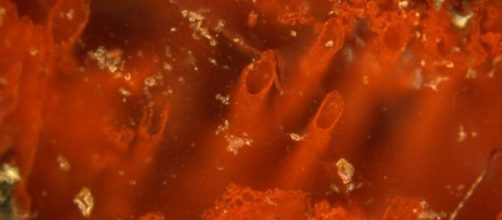A team of Scientists that work at the London-based public research college University College London have announced that they have discovered Earth's oldest fossils. The fossils were found in rocks that are part of the Nuvvuagittuq supracrustal belt in Quebec, Canada. They are the fossilized remains of bacteria that are thought to have formed between 3.77 billion and 4.28 Billion Years ago. This would make them around 300 million years older than any previously known fossils.
What are these new fossils?
These new fossils are microfossils that are made up of tiny filaments and tubes made up of a type of iron oxide known as haematite.
They are thought to be the remains of bacteria that once lived underwater close to hydrothermal vents, depending on chemical reactions involving oxygen to get their energy. The first author on the study, scientist Matthew Dodd, mentioned how it is very exciting for scientists if these fossils do turn out to be 4.28 billion years old because it would give insight into the origins of live that formed so shortly after the ocean did 4.40 billion years ago.
The findings would also highlight the success that iron-oxidising bacteria have had, since it means that they would have been around for at least 3.77 billion years. The authors of the report also added that the finding could add insight into if life exists or has ever existed in other places in the solar system, like Mars of Europa.
Scientists skeptical
Just like during previous findings of the world's then oldest fossils that were found in Australia a few years ago, which were dated back to 3.46 billion years old, there is bound to be debate with in the scientific community over this new discovery. Some leading bacteria scientists like Frances Westall from the French National Center for Scientific Research and David Emerson from the Bigelow Laboratory for Ocean Sciences are skeptical of the findings.
They both argued that the structures of the bacteria found did not look oriented correctly or what one expected compared to modern bacteria. Both did say they were open to the possibility that the bacteria could be that old but it will take more study and consensus from the scientific community to fully come to an agreement, as one would expect.

